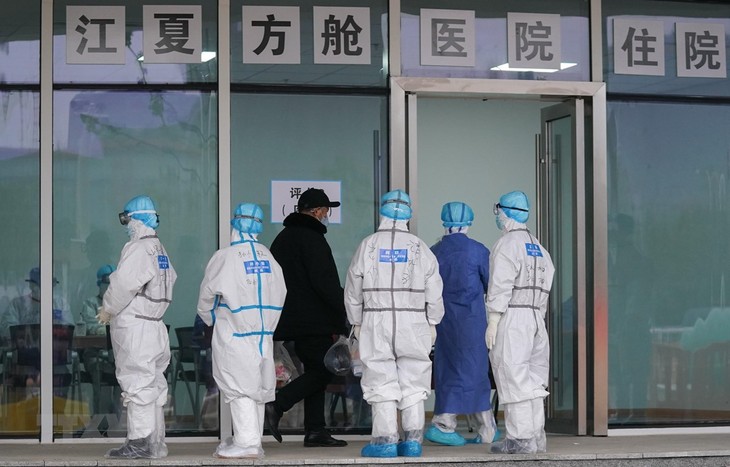(VOVWORLD) -The COVID-19 pandemic has caused the US-China conflict to flare up, changing the global political and economic picture.
 COVID-19 patients are transported to a field hospital for treatment in Wuhan, the capital city of Hubei province, China (Photo: Xinhua/VNA) COVID-19 patients are transported to a field hospital for treatment in Wuhan, the capital city of Hubei province, China (Photo: Xinhua/VNA) |
The trade dispute between the US and China has worsened as both sides exchanged words about the origin of the novel coronavirus, which caused the COVID-19 pandemic. Tensions have spread from trade and security to finance and technology. US allies and other countries have become more cautious in their relations with Beijing.
US-China conflicts likely to escalate
The US Transportation Department last Friday accused China of hindering two US air carriers from resuming flights to China and demanded that four Chinese air carriers file their flight schedules with the US government.
A day earlier, the US Commerce Department said it was adding nine Chinese companies and institutions to its blacklist. The blacklisted entities will face a number of restrictions on US items subject to Export Administration Regulations (EAR), including added license requirements for individuals or organizations believed to be associated with "activities contrary to the national security or foreign policy interests" of the US.
Early this month President Donald Trump said he is considering reimposing tariffs to retaliate against China for the coronavirus and threatened to roll back to the Phase 1 US-China trade deal.
Tensions are affecting finance and technology. On May 23, Hong Kong’s Hang Seng index dropped 5.6%, the biggest drop in 5 years, after Beijing announced a new national security law for the special administrative region.
Meanwhile, the US Senate passed a bill that would block some Chinese companies from listing on the US stock exchanges unless they follow for US regulations and audit standards.
The US-China rivalry over 5G technology has heated up with Washington repeatedly imposing restrictions on the Huawei Group for national security reasons. The US Commerce Department said on May 15 that all foreign chip manufacturers who use US technology must obtain a license to sell their products to Huawei.
COVID-19 forces countries to “weigh up” ties with China
COVID-19 has cast a deep chill on US-China relations and forced US allies to be more outspoken and decisive in reconsidering their ties with China. Last month, British MPs called on Prime Minister Boris Johnson to reassess the UK’s relationship with Beijing once COVID-19 crisis is over. The British government has sought to tighten control of strategic industries and technologies, specifically to reduce Huawei’s involvement in the UK’s 5G roll-out in the next 3 years. This change of policy is the latest display of worsening ties between London and Beijing. Dominic Raab, Secretary of State for Foreign and Commonwealth Affairs, tweeted on April 16 “The UK and China can’t have business as usual once the coronavirus crisis has passed.”
Similarly, the Australia-China relationship has become strained in the wake of COVID-19. Beijing slapped 80% tariffs on Australian barley exports to retaliate for Canberra’s support for an independent and through coronavirus pandemic investigation. Tit-for-tat rhetoric and actions have been made and show no sign of stopping.
COVID-19 is intensifying the ingrained tension between the US and China and could ignite a new cold war. The pandemic has also hurt China’s relationship with its most important economic, trade, and investment partners.